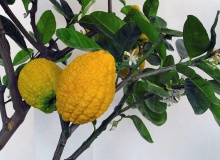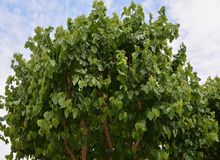


This fruit is mentioned in Leviticus in relation to the feast of the Tabernacles and it actually refers to the citron tree.

The mulberry tree appears in 2 Samuel 5:23-24 and 1 Chronicles 14:14-15.

Despite being a plant that grows wild in Palestine, it is never mentioned in the Bible.

Beech trees need cool, nutrient-rich soil, as well as plenty of rain and atmospheric humidity. These conditions are not common in Palestine, so there are not likely to have been any beech groves there.

Resins are organic secretions produced by many plants with the aim of providing a natural protection against insects, fungi and other pests.

The psalmist alludes to the tall cypress trees that supported the heavy nests of the storks to highlight the way God cares for his creation.

The varying and changing climate in the Bible lands allowed for a wide variety of trees, which took root everywhere from the high, and very cold, mountain regions of Mt. Hermon to the hot Negev desert and the shores of the Dead Sea.

The term was translated as “cedar”, “poplar” and even “cypress” as it was thought that fir trees did not exist in Biblical lands.

Today, the earth has approximately 3 trillion trees left, but each year more than 15 billion are lost.

Las opiniones vertidas por nuestros colaboradores se realizan a nivel personal, pudiendo coincidir o no con la postura de la dirección de Protestante Digital.